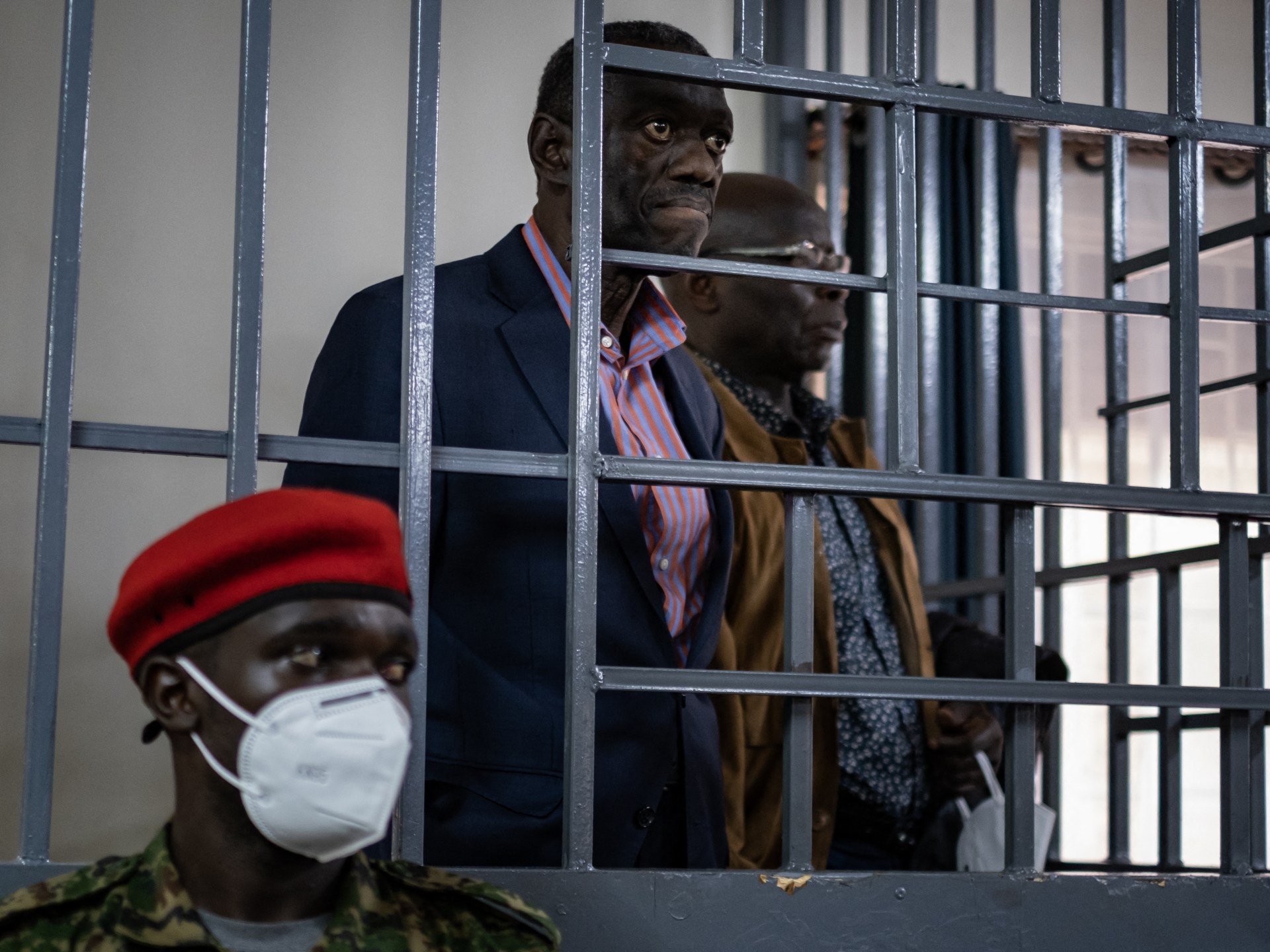Africa
Uganda drops military trial as opposition leader’s health falters

Kizza Besigye’s Deteriorating Health Amid Hunger Strike Sparks International Concern
Kizza Besigye, a prominent Ugandan opposition leader and longtime critic of President Yoweri Museveni, has reportedly grown critically ill while on a hunger strike to protest his imprisonment. His lawyer raised the alarm on Thursday, warning that Besigye’s health had taken a dangerous turn due to his prolonged fasting. The news has sparked widespread concern, both locally and internationally, as Besigye’s condition continues to deteriorate.
Besigye, who has been detained since November, is currently being held at Luzira Maximum Security Prison in Kampala, the Ugandan capital. His lawyers and family allege that he was “kidnapped” in neighboring Kenya and forcibly brought to Uganda, a claim that has been met with outrage from rights groups and opposition lawmakers. Amnesty International has condemned his detention as a “travesty of justice,” further fueling calls for his immediate release.
The Ugandan government, however, has maintained that Besigye’s arrest and detention are legal, stating that he faces charges of illegal firearm possession and threatening state security. Despite these claims, the international community has expressed skepticism, pointing to a long history of human rights violations under Museveni’s rule, including illegal detentions, torture, and extrajudicial killings.
Uganda Reverses Plan for Military Trial Amid Besigye’s Failing Health
In a surprise move, Uganda’s government has reversed its controversial decision to try Kizza Besigye in a military court, opting instead to transfer his case to a civilian court. The announcement was made by Information Minister Chris Baryomunsi late on Sunday, February 17, 2025, amid growing public outcry over Besigye’s deteriorating health.
The reversal comes after Besigye, who began a hunger strike last week, was rushed to a medical clinic in Kampala on Sunday. Video footage and eyewitness accounts describe Besigye as frail and struggling to walk, further intensifying demands for his release. Baryomunsi had earlier visited Besigye in prison, urging him to end his hunger strike while his case was being transferred. However, Besigye’s wife, Winnie Byanyima, dismissed the minister’s visit as “highly suspicious,” accusing him of being complicit in her husband’s captivity.
“Our family finds your visit highly suspicious, and we will hold you and your government fully accountable for any harm that comes to him,” Byanyima wrote on social media. Her statement reflects the deep distrust many Ugandans have in their government’s handling of Besigye’s case.
Besigye’s Hunger Strike: A Desperate Act of Protest
Besigye’s hunger strike, which began last week, has been described by his wife as an “act of protest” against his “illegal detention.” The opposition leader, who has been a thorn in the side of President Museveni for decades, has repeatedly denied the charges against him, calling them baseless and politically motivated.
Besigye’s decision to go on a hunger strike has drawn widespread attention, both within Uganda and internationally. His deteriorating health has become a symbol of the broader struggle for democracy and human rights in the East African nation. Rights groups and opposition supporters have rallied around Besigye, calling for his immediate release and an end to what they describe as a “travesty of justice.”
The Ugandan government, however, has refused to back down, insisting that Besigye must face trial for the charges against him. This stance has only added to the tension, with many Ugandans viewing Besigye’s persecution as part of a larger pattern of repression under Museveni’s rule.
A Long History of political persecution
Kizza Besigye is no stranger to political persecution. Over the years, he has been arrested numerous times for his vocal opposition to President Museveni, who has ruled Uganda since 1986. In 2022, Besigye was detained on charges of inciting violence, a move that was widely condemned by human rights groups.
Besigye has also run for president four times, challenging Museveni in elections that were marred by allegations of fraud and voter intimidation. Despite his repeated losses, Besigye has refused to back down, becoming a symbol of resistance against Museveni’s authoritarian rule.
The Ugandan government has consistently denied allegations of human rights abuses, arguing that those arrested are held legally and given due process in the judicial system. However, the international community remains skeptical, pointing to a long history of illegal detentions, torture, and extrajudicial killings.
International Outcry and Calls for Besigye’s Release
The deteriorating health of Kizza Besigye has sparked an international outcry, with rights groups and foreign governments calling for his immediate release. Amnesty International has described Besigye’s detention as a “travesty of justice,” while other organizations have accused the Ugandan government of using the legal system to silence political opponents.
The international community has also expressed concern over the broader implications of Besigye’s case. His persecution is seen as part of a larger pattern of repression in Uganda, where opposition leaders and supporters face constant harassment and intimidation.
Despite the growing pressure, the Ugandan government has shown little willingness to compromise. Instead, officials have doubled down on their stance, insisting that Besigye must face trial for the charges against him. This hardline approach has only added to the tension, with many fearing that Besigye’s health could deteriorate further if he remains in custody.
The Broader Implications for Uganda’s Political Landscape
Kizza Besigye’s case has thrown a spotlight on the broader challenges facing Uganda’s political landscape. His persecution is seen as part of a larger pattern of authoritarianism under President Museveni’s rule, where opposition voices are routinely silenced through intimidation, detention, and violence.
The international community has called for urgent action to address the human rights crisis in Uganda, with many arguing that Besigye’s case is a test of the country’s commitment to democracy and the rule of law.
As Besigye’s health continues to deteriorate, the world watches with bated breath, hoping for a peaceful resolution to this crisis. For now, the outcome remains uncertain, leaving many to wonder what the future holds for Uganda and its embattled opposition leader.











